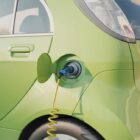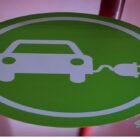The introduction of E-vehicles or electric vehicles has become a necessity these days. It is no longer a luxury. The reason is because of increasing pollution resulting in global warming. The Earth, as a whole, has been experiencing rising temperatures in the last few years. Respective governments worldwide are proactively taking steps to curb pollution and reverse the otherwise gloomy situation.
Launch of E-Vehicles
Electric 2, 3, and 4-wheelers have become popular globally. Governments and manufacturers have kept short-term and long-term goals to replace fossil-run vehicles with green ones. The process is only gaining a significant foothold with time. Developing countries are already ahead in the race to protect the Earth. Developing countries like India have also joined the race.
Alternative transportation services
Many brands have launched two and three-wheelers of different models for personal and commercial use in India. Electric 2 and 3-wheelers are the perfect choice to offer last-mile connections. The reason is they provide affordable, quick transportation services. They are the best choice to address growing pollution concerns in a densely populated country like India.
Overcoming challenges
The increasing population and rapid urbanization have posed challenges while providing sustainable, efficient last-mile transportation solutions. EVs and DC fast charging stations are promising alternatives. Electric 3-wheelers occupy 28% or more space in EV volumes in India. The last-mile transportation segment is witnessing changes beneficial for the country and its citizens. These vehicles ensure controlling pollution while providing decent transportation.
Rapid urbanization
It is the primary cause of the economic growth of the country. Cities are expanding rapidly and absorbing neighboring towns and villages, converting them into 2 and 3-tier cities. However, in urban areas, living conditions are affected gravely by emigration. They face challenges in the form of poor last-mile connectivity. Electric 2 and 3-wheelers are undoubtedly the best choice for the masses as a last-mile transportation option.
Last-mile connections
For last-mile connections, electric 2 and 3-wheelers are the ideal choice. They offer affordable, quick transportation services. Economics mainly drives last-mile transportation in India, thus ensuring significant cost differences. The electric 2 and 3-wheeler revolution has touched many Indian cities. Public charging stations are installed at key places to provide power to e-vehicles. The mission is to achieve zero-emission.
Improving landscape
EV 2 and 3-wheelers are improving last-mile delivery in the commercial and business landscape. EV sales volume growth in the current fiscal year is satisfactory. With this segment growing fast, last-mile logistics providers should contribute more. For the electric mobility revolution in the country, the shift witnessed is a primary acceleration. EVs enable low-cost operation. They even cover distances similar to conventional ICE vehicles.
Commercial and Environmental benefits
Since fewer moving parts are present in EVs, it invites lower maintenance costs. Besides, frequent oil changes are not necessary. Electricity is also lesser when compared to petrol or diesel, thus ensuring reduced refueling costs. The Indian government provides tax benefits and subsidies to boost EV adoption. Thus owning 2 and 3-wheeler EVs is attracting investors and drivers in large numbers.
Transforming India’s last-mile transportation
EV 2/3-wheelers have proved to be an environment-friendly, affordable, and sustainable mode of transportation. Its widespread adoption has helped reduce carbon emissions and pollution. At the same time, it has managed to improve livelihoods by generating employment opportunities. Significant environmental benefits are offered over conventional petrol/diesel-powered counterparts. They ensure zero tailpipe emissions, improving air quality, especially in heavily populated urban areas. It also combats climate change.
Supporting Livelihood
EV 2/3-wheelers impact drivers’ livelihoods significantly, especially those belonging to the unorganized sector. It offers affordable transportation means to cover short distances. Moreover, it helps transport passengers and deliver goods to destinations. The low initial investment is necessary to own e-rickshaws, unlike traditional auto-rickshaws. They are accessible easily nowadays and are better options for those seeking additional income sources or self-employment.
Favorable policies and infrastructure
The government has realized the need to install charging stations throughout the length and breadth of the country in all accessible areas of cities and towns. Hence, charging infrastructure is boosted to support the growing demand for EVs. Public and private players are choosing strategic locations to establish charging stations. It includes transportation hubs, residential areas, and commercial hubs.
Other government initiatives
To promote Electric vehicles among the masses, the government has introduced a ‘Faster EV Manufacturing Adoption’ scheme referred to in short as ‘FAME’. Proactive measures taken can help boost EV adoption through incentives and diverse policies. This scheme offers buyers attractive financial incentives, thus making EVs cost-effective. Ambitious targets are set for electrification to ensure maximum electric-operated vehicles run on the roads by 2030.
Saving the planet
Besides addressing growing pollution concerns, EVs are doing their bit to save the planet. It is successfully transforming India’s urban mobility. The future is all about electric vehicles in all forms and, there is no denying this fact!



